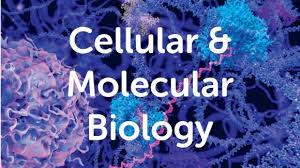Ph.D. in Biology - Cell and Molecular Biology: Introduction, Admission, Registration, Eligibility, Duration, Fees, Syllabus 2024

Introduction:
A Ph.D. in Biology - Cell and Molecular Biology is a rigorous program designed to train students in the advanced study of cellular and molecular processes. This degree encompasses a deep dive into the life at its most fundamental level, exploring how molecules and cells create complex organisms and systems. Graduates emerge as experts ready to push the frontiers of biomedical research and biotechnology.
Admission Process:
- Completion of an application form with a statement of purpose.
- Submission of previous research experience and publications.
- Academic transcripts with a strong emphasis on biology and chemistry.
- Letters of recommendation from academic or professional mentors.
- A successful interview with the admissions committee.
- GRE scores, if required by the institution.
Eligibility:
- A Master’s degree in a relevant field, such as molecular biology or genetics.
- Laboratory experience in cell biology or molecular techniques.
- A strong foundation in biochemistry and molecular genetics.
- A well-articulated research interest in cell and molecular biology.
- A faculty member’s endorsement for supervision.
- Fulfillment of any additional prerequisites set by the department.
Completion Time:
A Ph.D. in Biology - Cell and Molecular Biology typically requires 4-7 years to complete. This timeframe includes coursework, qualifying exams, and a dissertation based on original research. The program is designed to foster independent thinking and research skills, preparing students for a future of scientific discovery and innovation.
Career Opportunities:
- Research scientists in academia or industry.
- Biotechnologists in pharmaceutical companies.
- Genetic counselors and clinical researchers.
- Science policy advisors.
- Biomedical writers and patent attorneys.
- Educators in higher education institutions.
Syllabus:
- Cellular signaling and communication.
- Advanced molecular genetics.
- Structural biology and bioinformatics.
- Stem cell biology and regenerative medicine.
- Cancer biology and therapeutics.
- Techniques in molecular biology.
Internship Opportunities:
- Biomedical research labs in universities.
- Internships at pharmaceutical companies.
- Clinical research organizations.
- Governmental research institutes.
- Biotech startups.
- Non-profit medical research foundations.
Scholarship and Grants:
- Research assistantships with stipends.
- Teaching assistantships in undergraduate courses.
- Grants from national science foundations.
- Fellowships from biomedical research organizations.
- Scholarships from university endowments.
- Travel awards for scientific conferences.
FAQs:
What kind of research can I pursue in this Ph.D. program?
Research areas include but are not limited to cellular metabolism, gene regulation, and molecular pathogenesis.
Is teaching experience required during the Ph.D.?
While not always mandatory, teaching assistantships are common and provide valuable experience.
